India and Afghanistan: Friends with benefits?
Joining India and Iran against Pakistan will be detrimental to Afghanistan’s long-term future
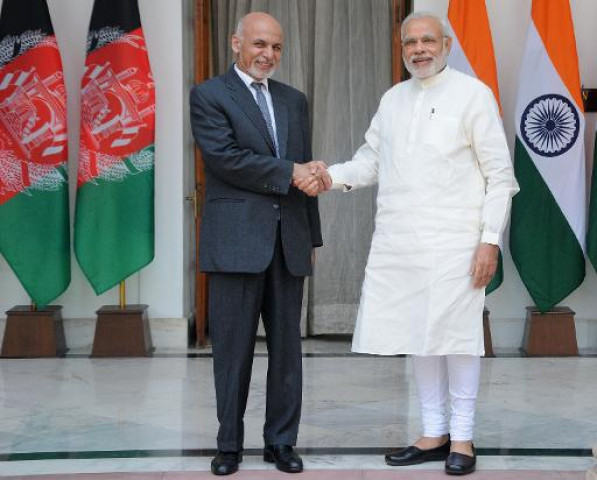
Afghan President Ashraf Ghani shakes hands with Indian Prime Minister Narendra Modi in New Delhi, on April 28, 2015. PHOTO: AFP
Afghan endgame
Despite their differences Ghani and Abdullah agree on one point: Blaming Pakistan for most of the evils confronting their government. In New Delhi, Ghani lectured Islamabad on why it should act against terrorists indiscriminately. "Making a distinction between good and bad terrorism is an approach that is enormously short-sighted. Those who think they can manipulate the psychology of this phenomenon or affect the pathology are mistaken," said the Afghan president during his address. "There is a war in Pakistan which the media doesn't speak about. There are 207,000 Pakistani forces in Khyber-Pakhtunkhwa and Balochistan. This violence needs coverage and understanding, and needs to be stopped," he added.
The joint statement sought an end to all sponsorship and sanctuaries to terrorists. Delhi announced to earmark $200 million per annum over the next five years to build Kabul’s capacity and capability in education, health, agriculture, energy and infrastructure development sectors. Besides signing an extradition treaty, the leaders expressed satisfaction over signing of the MoU for cooperation in peaceful uses of outer space.
Chabahar port will help India bypass Pakistan: Afghan president
The duo boasted the cooperation to anchor peace and stability in the region and beyond. The next Afghanistan-India high-level consultations are scheduled on the sidelines of UN General Assembly where the US official will be part of the trilateral meetings. Ashraf Ghani will also be the chief guest at the Amritsar Ministerial Conference of the Heart of Asia-Istanbul Process on December 4. Already, the Afghan president and the Indian premier have met over half a dozen times over the past 10 months. The diplomatic manoeuvring has paced up after the signing of the trilateral agreement involving Afghanistan, India and Iran in May 2016, primarily about using Chabahar port for transit trade.
The plight of Afghans living within its territory
Since 9/11, developments in Pakistan have been pretty much according to forecast except for two major caveats. Firstly, initiation of Zarb-e-Azb and Khyber military operations with unchallenged support from civilian and military leadership and secondly, the signing of China-Pakistan Economic Corridor. Cynical neighbours of Pakistan expected anything but a stringent military operation against non-state extremist groups and a resultant sharp decline in terror incidents. Afghanistan, on the other hand, has failed to yield requisite leadership to fill the political void exploited by militants, tribal leaders and ethnic hate-mongers.
For instance, Tarin Kowt in Uruzgan, Lashkar Gah in Helmand and Kunduz, three of 34 provincial capitals, are under direct Taliban siege while another 50 are ‘heavily contested’ admit Afghan officials publically. Most civil servants have either fled or wield negligible influence against the militia’s parallel administrations. As if this was not enough, ethnic Pashtun grievances against the non-Pashtun elite remain ignored like most other crucial challenges. No foreign leader can provide the healing touch that Afghan society desperately needs.
Afghanistan’s needs are more rudimentary. However, its elitist and rash leaders have been shy of addressing the core issues with their allies. Much hyped cooperation from India serves Modi’s electorate and Ghani-Abdullah’s political rhetoric against Pakistan than anything more tangible to the benefit of Afghan people. By embracing the Indian narrative, Afghan leaders are volunteering for what its NSA Ajit Doval explicitly stated: “India will fight Pakistan to the last Afghan.”
A deeper friendship?
The other critical question remains about the magnitude and utility of India’s support to Afghanistan’s security forces. Kabul fancies tipping the balance in its favour by hosting Indian military advisors, sending larger troop contingents for specialised training, acquiring used Russian gunship and light utility helicopters. On the other hand, India is dumping its decommissioned 105mm mountain artillery guns as it sees the Central Asian state as a testing ground for locally-assembled military hardware.
Kabul’s belligerent rhetoric not in regional interest: Maleeha
Instead of loans and grants, Afghanistan needs hard cash to streamline the government institution as well as recruit, train and equip more security personnel. Currently, it has 350,000 soldiers and policemen, which is far lower than the number of soldiers India has deployed in occupied Kashmir.
But why would any country fund Afghan government? In the past, assistance worth billions of dollars has only helped create a new breed of money launderers paired with aging warlords and decaying politicians. For a country whose territory was used to plan and launch 9/11 attacks 15 years ago it has not yet come to terms with its reality. The writ of the state is a mere figment of imagination, and non-state actors an open secret.
The way forward
Joining India and Iran against Pakistan will be detrimental to Afghanistan’s long-term future. Kabul is revisiting the Cold War era by reviving hostile policies. It used to be a relatively peaceful country with proper infrastructure, but today’s Afghanistan has three million citizens living as refugees in Pakistan and hundreds braving stormy Mediterranean waters to reach Europe. Unless Afghan people don’t own their country, the world will continue to toy with their geography and resources. Meanwhile, Islamabad should stay focused on establishing the state’s writ and obliterating non-state actors in its very own national interest.
Naveed Ahmad is a Pakistani investigative journalist and academic with extensive reporting experience in the Middle East and North Africa. He is based in Doha and Istanbul. He tweets @naveed360

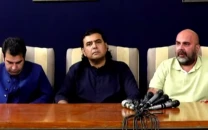
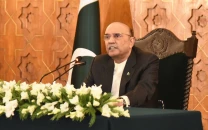
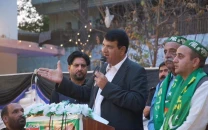
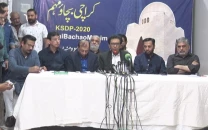

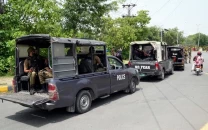












COMMENTS
Comments are moderated and generally will be posted if they are on-topic and not abusive.
For more information, please see our Comments FAQ